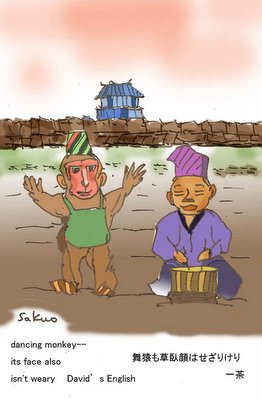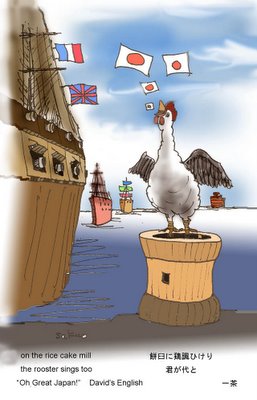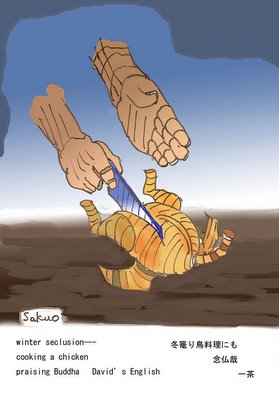 Issa Original
Issa Original 1816
舞猿も草臥顔はせざりけり
mai-zaru mo kutabire-gao wa sezari keri
David’s Englishdancing monkey--its face alsoisn't weary
David’s CommentDancing monkeys perform their tricks in the New Year's season. Shinji Ogawa asks, "Who else didn't show a weary face? The master of the dancing monkey? In any case, I am totally at a loss. I cannot see any significance in this haiku. When we read haiku, we should make our effort to understand the haiku. However, it is largely of the composer's responsibility to make the haiku understandable." I agree. Though a good haiku must leave something unsaid so that readers can complete it with their imaginations, this particular example perhaps leaves too much unspoken.
Sakuo’s Comment
Why the monkey aren’t tired ?
Why did Issa put “mo=also” in this haiku ?
I suppose the monkey is tired as well as his master ,
because monkey dances are busy at New year days.
The competitors of the dance didn’t appeared in Edo city,
The business of monkey show was monopolized by discriminatory people
who belonged to the lowest class in Edo stratified society.
They were called Eta.
Owing this structure the monkey dance team must do their best in New Year’s
performance. I think there would be boss of the business who exploited
each teams. but poverty of Eta needs the team work at special Year event.
sakuo Renku
エタ忙しや江戸の正月
Eta is busy
on New Year in Edo






















